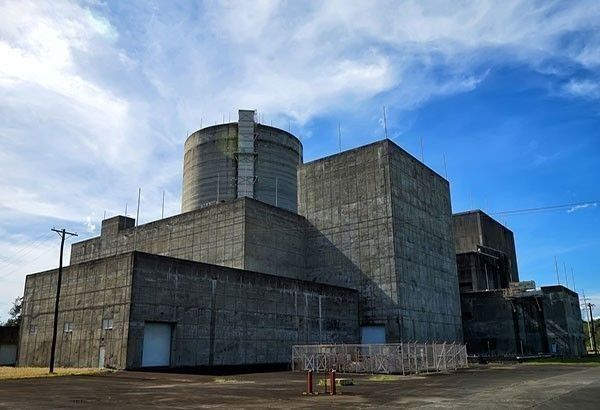Nuclear development seen as investment area for Maharlika fund

MANILA, Philippines — Maharlika Investment Corp. (MIC), the country’s first sovereign wealth fund manager, could end up investing in nuclear development to unlock its potential as an energy source by 2032.
On the sidelines of the inaugural Philippine International Nuclear Supply Chain Forum, Energy Secretary Raphael Lotilla said the Department of Energy (DOE) has tapped MIC to explore available financing mechanisms for nuclear development.
“We have requested them to do the studies on how to finance because, as the President pointed out, this is one area that needs to be studied further by the Philippines,” Lotilla said.
The DOE, he said, wants to ensure that the upfront cost in constructing nuclear facilities will not be shouldered alone by the current generation of Filipinos.
“Since the life of the nuclear power plant will go beyond the life of a generation, then it can be spread more evenly among those who will benefit from it,” he said.
Under the Philippine Energy Plan, the country wants to deliver at least 1,200 megawatts of nuclear capacity by 2032 and scale this up to 2,400 MW by 2035 and 4,800 by 2050.
Nuclear energy is seen as one of the cleanest, cheapest and most reliable options to produce electricity to meet growing power demand while transitioning to a low-carbon economy. Safety issues, however, hound its utilization.
Although it remains uncertain whether the MIC will make nuclear investments, DOE-Energy Utilization Management Bureau director Patrick Aquino said he would not be surprised if it did due to attractive returns.
“The charter of Maharlika is to make investments, and they’ve been really looking at the power sector in particular,” Aquino said.
Last month, MIC president and CEO Rafael Consing joined the Philippine delegation to the United Arab Emirates to seek investments in energy infrastructure and clean energy sources, including nuclear.
“For a country like us, electricity is a big component. We leave it up to the sound judgment of Maharlika whether they come in at whatever stake,” Aquino said.
MIC, which was recently criticized by lawmakers over lack of concrete plans, has yet to make its first investment as its organization structure and staffing pattern remain pending without approval from concerned agencies.
Aquino, however, said the DOE is keen on providing comprehensive information about nuclear development to enable MIC to make a well-informed decision regarding the extent of its investment if it plans to push through.
Pursuant to the country’s nuclear roadmap, the government aims to have a fully operational and independent nuclear regulatory commission by 2026.
This is in line with the landmark “123 agreement” signed by the Philippines and the US for the safe and peaceful utilization of nuclear energy.
The deal is expected to enhance the two countries’ collaboration in fostering clean energy and energy security, as well as strengthen their long-standing diplomatic and economic relationships.
The United States took center stage at the three-day nuclear forum this year, which would also be attended by private companies and trade groups from South Korea, Japan, Canada and France.
- Latest
- Trending

























